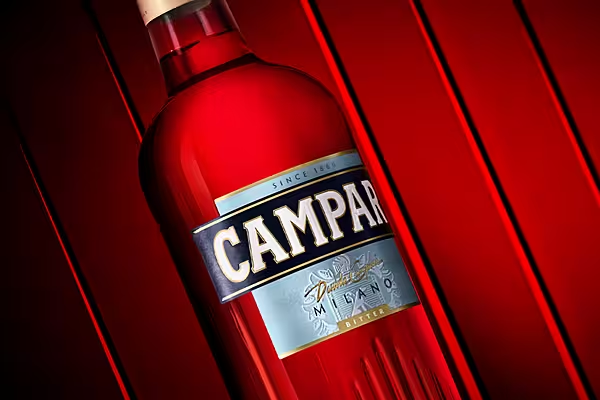Campari's complicated agreement to buy Grand Marnier shows just how hard it is to prise trophy assets from family owners in Europe. But it's easy to see why the Italian drinks group is taking such trouble to buy the famous French spirits brand.
The consolidation drive in soft drinks and beer has been less prevalent in liquor. Drinking measures are smaller so the economics are more favorable to smaller firms. Grand Marnier's owner, Paris-listed Societe des Produits Marnier Lapostolle, could have continued paying decent dividends to its current owners – split about equally between family members and the free float – for some time to come.
But Campari could offer a price that has tipped the family holders to sell. Its €8,050 ($8,950) per share bid equates to an enterprise value of €652 million, a generous 21.2 times SPML's trailing Ebitda.
Campari should make this pay off. It will take on elements of Grand Marnier's distribution that are outsourced currently. These were worth €16.6 million of EBITDA last year. Assume Campari can also extract savings worth 7-10 per cent of SPML's sales and that could add another 10 million euros of EBITDA. Factor these in and the deal's trailing enterprise multiple falls to about 11 times.
Alternatively, those potential €26.6 million of annual revenue and cost benefits look to be worth not much less than the €258 million (or 60.4 per cent) premium over SPML's closing equity value before the deal broke.
These same deal economics would be available to any other big drinks group that might be interested. But Grand Marnier is small; its relative importance will be greater to Campari than a spirits behemoth such as Pernod Ricard. This may explain why the family holders were comfortable with selling. Campari is also staggering the deal, buying about 20 per cent from certain family members now, leaving others the right to sell a further 29 per cent at any point up to 2021, when Campari can force the issue. It's fiddly, but such structures may be necessary to acquire family silver.
Campari could have just launched a bid without securing the family block. This would have risked failure. It's always possible that Campari now faces resistance from independent shareholders hoping for better terms. But it's hard to see where these might come from now the family, which exercises control through special shares, has chosen a preferred partner.
It all looks tortuous. But the deal shows businesses with big family holdings are acquirable with some effort.
News by Bloomberg, edited by ESM. To subscribe to ESM: The European Supermarket Magazine, click here.













